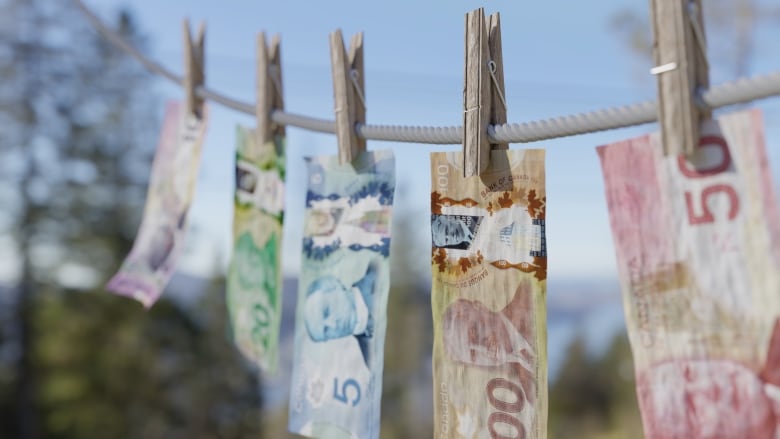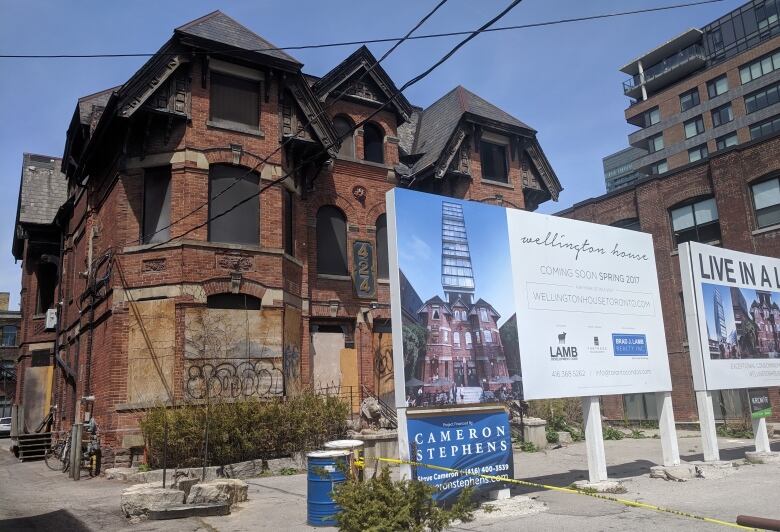The disturbing question of why Canada's done so little to end money laundering: Don Pittis
We've known for years Canada had a money-laundering problem. Why haven't we fixed it?

There is aprincipleof financial investigation so old that it's often used in its originalLatin: Cui bono?
The question of who benefits, as the term translates,implies that, if you are trying to solve anycrimeparticularly one involving money you must look for who stood to profit.
Despite commendable investigative work in B.C. lately on money laundering, experts say the fact that ithas been a problem in Canada isan old, opensecret.
As someone tweeted following a story on the C.D. Howe report by Transparency International'sKevin Comeau, Canadian money laundering was not exactly "new news."
'Maytag'of money laundering
"All available evidence suggests that international drug barons view Canada as a safe place to launder their illegal cash," said a Maclean'smagazinestorycited in the tweet. "In fact, DEA agents laughingly refer to Canada as the 'Maytag'of the money-laundering industry."
It was definitely not fresh news. That Maclean's piece was published about 30years ago, in October1989.
This is not new news.https://t.co/84VJYd81jy
—@Jamie_ParanuikExperts say that while Canada has toughened up its laws, especially in banking, every time the government has tried to crack down, the potential beneficiaries of that flow of money have pushed back.
Margaret Beare, author of the 2007 bookMoney Laundering in Canada:The Chasing of Dirty and Dangerous Dollars,says we are seeing something similar in the latest fight to impose legislation that actuallyworks.
"The current publicity re B.C. laundering shows that a steplike insisting on exposure of 'real'owners is resisted, regardless of the evidence that it is essential in most corporate or financial dealings," Beare said in an email conversation last week.
There have been proposals that anybody buying real estate in B.C. will have to reveal the beneficial owner, but not everyone's in favour of that move.
"We still have the exception of lawyers from mandatory reporting and they still can take fees from dirty money," adds Beare, a professor at York University's Osgoode Hall law faculty.
For governments, one of the political difficulties of deciding to crack down is that theinflow of money estimated in the recent report by Maureen Maloney using the gravity model at about $50 billiona year nationally boosts many of the things governments like to boost.
As the B.C. investigations have shown, dirty money boosted real estate, car sales and casino income, as well as parts of the legal and financial sector involved in helping launder the cash. And once it is officially clean, completely above-board businesses are able to profit without legal taint.
"Money, dirty or clean, helps the economy until it becomes a distortion," said Beare.

Just as with any other inrush of cash to the Canadian economy, that money went into new businesses that paid taxes. It created jobs. If you didn't look at the source, the money was good forCanada and Canadians.
So have successive Canadian federal and provincial governmentsintentionally turned a blind eye to the criminals who launder their money here? If so, why?
"It is certainly the case, evenfor someone like me who works in corporate criminal liability and not usually with organized crime, that Canada's always had, unfortunately, a reputation for being a place where money laundering was perhaps easier than in other places," says Jennifer Quaid, a lawyer who is a professor at the University of Ottawa.
Wilful blindness?
She says too much time has gone by to claim that political and law enforcement authorities did not know it was happening or understand there were possible solutions that could have been adopted. The difficult question is whether the reason nothing has been done issimply benign neglect or something worse.
"Has there actually been kind of what we call a wilful blindness, where you just don't want to ask the questions, you're kind of not wanting to look because you don't want to know?" saidQuaid. "If that's the case, it's pretty serious."
Because the process of money launderingis so opaque, pointing fingers in laundering cases is always difficult,said Vanessa Iafolla, who, as part of her research for a forthcoming book, interviews real estate agents and brokerages that have reported suspected money-laundering attempts.
Iafolla, whose work is funded by the Canadian Research Network on Terrorism, Security and Society,said that when financial institutionsopposed new rules in the 1980s, they complained the laws were too complicatedor too costly, not that they did not want to lose business from laundered cash.

Despite the short-term stimulus that dirty cashmight bring, all the experts I spoke to worried more about the cost of money laundering to Canadian society. Not only does illegal cash distort markets as inthe case of real estate, it has a potentially corrupting effect.
In places such as Mexico or Colombia where the influence ofcriminal cash has been acknowledged, no one was surprised that the billions of illicit dollars corrupted politicians and police, squeezing out legal business and creating a climate more accessible to criminal elements.
Canada does not have a specialimmunityto corruption. And while B.C.'s new public inquiry where witnesses can be subpoenaed and forced to testify may open up a Pandora's box, experts say it is crucial to get to the bottom of that difficultquestion: Cui bono?
"I think it's the defining question," said Iofolla. "Who benefits and how do we find that out."
Follow Don Pittison Twitter @don_pittis












_(720p).jpg)


 OFFICIAL HD MUSIC VIDEO.jpg)
.jpg)



























































































